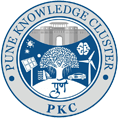Vision
To map the incidence of Dengue in selected study sites within the city to estimate the true burden of cases in the city.
Description
This hospital-based surveillance has low sensitivity during the inter-epidemic season. It only records the tip of the iceberg because (i) globally, 70%– 80% of Dengue viral infections are sub-clinical or quasi-symptomatic , (ii) only around 30% of symptomatic cases are estimated to be hospitalized in India, and (iii) the private sector covers between 40% and 80% of all cases of infectious diseases in India, including Dengue.
Surveillance through National Vector Borne Disease Control Programme (NVBDCP), as well as the Integrated Disease Surveillance Programme (IDSP) is responsible for reporting, outbreak identification, and integration of all the data. Surveillance implementation was mostly framed as passive, sentinel, and hospital-based. Reporting varies weekly to monthly, flowing from primary healthcare centres to district and national authorities. Dengue confirmation is only recognized if conducted with government-distributed MAC-ELISA tests. The surveillance system predominantly relies on public reporting units. Emergency and outbreak responses are often described as timely; however, they are challenged by under-reporting, weak data reliability, lack of private reporting, and system fragmentation . Recent studies using various models have suggested gross under-reporting of dengue cases. It is estimated that each case reported may be multiplied by 200 to get a fair estimate.
Considering the gaps in the existing Dengue surveillance, a clinical study is required to address these gaps and to get the actual disease burden of Dengue in the city.
Objectives
- Mapping of disease burden – To estimate disease incidence in the city to predict true disease spread and support in building a surveillance system for dengue and dengue-like diseases.
- Sequencing of samples for further molecular diagnostics – Whole Genome Sequencing will help in providing data that will help in the development of low-cost molecular diagnostics for testing the disease.
Partners
- BJ Medical College, Pune
- Noble Hospital and Research Centre, Pune
- GenePath
For more information and interest to support, please write to [email protected].
